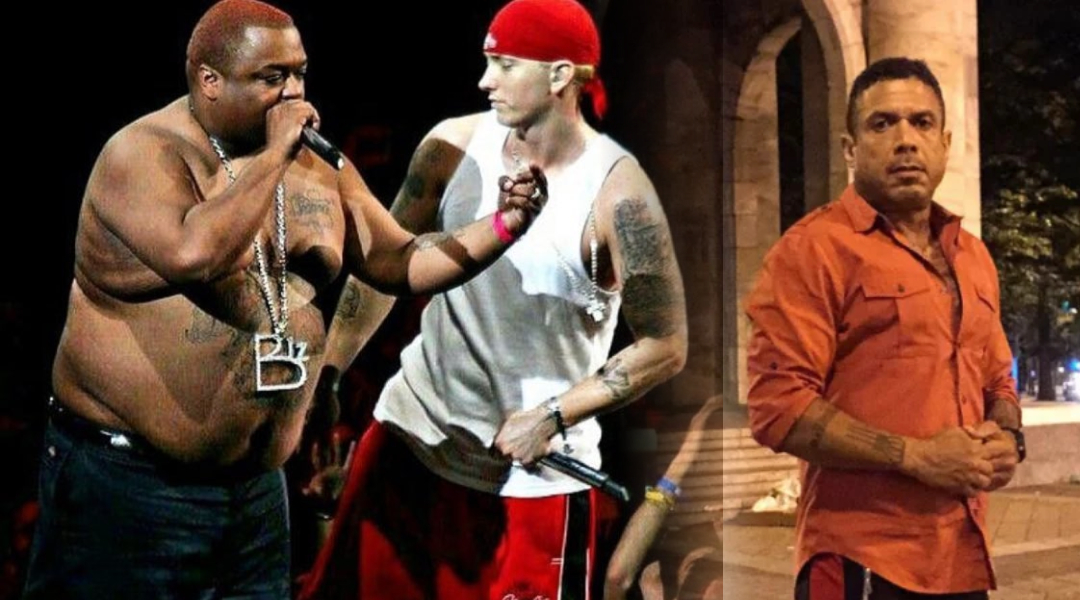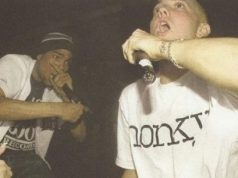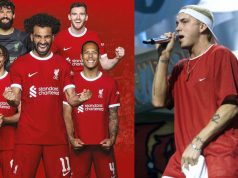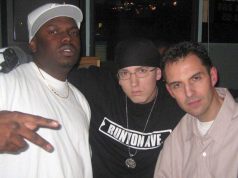For years Benzino has been fuelling his crusade against Eminem under the false pretence that he fights racism and white dominance. His evidence, however, was tampered with before being made public.
There is a famous story about guys from Detroit who provided already beefing Benzino with Em’s record where he used a racist slur and allowed disparaging comments about black girls. It was an old freestyle never meant for release, recorded when Eminem was 15-years old. When Benzino made the tape public (against the advice of the magazine founder), Marshall did not try to hide from responsibility behind verbal tricks like, “Sorry if I hurt your feelings”. He owned it, blamed himself, his anger and his stupidity. And as there was never another indication that Em felt anything but respect for his Black friends and colleagues, it was easy to believe him.
As to offensive comments, well, that’s something his stage alter ego hurls around indiscriminately. Em talks about it in “Yellow Brick Road” off “Encore” while also admitting his mistakes. Basically, the half of its third verse is about the situation with this tape:
Which reminds me, back in ’89, me
And Kim broke up for the first time; she was tryin’ to two-time me
And there was this black girl at our school who thought I was cool
‘Cause I rapped, so she was kinda eyein’ me
And oh the irony, guess what her name was?
Ain’t even gonna say it, plus
The same color hair as hers was and blue contacts
And a pair of jugs, the bombest goddamn girl in our whole school
If I could pull her, not only would I become more popular
But I would be able to piss Kim off at the same time
But it backfired
I was supposed to dump her, but she dumped me for this black guy
And that’s the last I ever seen or heard
Or spoke to the “Ole Foolish Pride” girl, but I’ve heard
People say they heard the tape, and it ain’t that bad
But it was: I singled out a whole race
And for that I apologize, I was wrong
‘Cause no matter what color a girl is, she’s still a—
This is a key moment in a story, as Bizarre told it on Vlad TV. It was not Eminem who singled out a whole race. That was Benzino. Bizarre didn’t even know that the song existed before Benzino played a snippet from “Ole Foolish Pride” at a press conference in 2003:
That was way before my time. Eminem was with another group at that time, so I knew none about it. The song was cut off and edited. He was freestyling and was naming all types of races, like, “White girl, what’d you think about a white girl? Black girl…” But The Source just edited the black girl part and made it like it was racist. So that’s the information for you.
Interestingly, an interviewer tried to insinuate that Benzino leaking this song might have affected Eminem heavily to the extent that he stopped writing and became a recluse after releasing “Encore”.This, or maybe Marshall became so rich that he just got lazy, there were only two these suggestions from somebody who is supposed to know his hip hop history. But nothing about Em fighting for his life, enveloped by grief after Proof’s tragic death and succumbing to prescription drugs, nothing about focusing on his children – none of this information seems to reach this interviewer. And this is such a crucial moment in Eminem’s career. Without understanding why Eminem disappeared for years is difficult to appreciate the new energy he brought on his comeback album and to all projects after that. Yet to be underappreciated is something Eminem is familiar with. Jack Harlow spoke on that topic recently.












